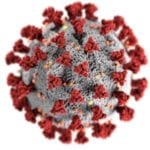Aware has published a new blog post that seeks to explain why biometrics will be such an important part of the vaccination conversation, especially with regards to immunity credentials. The company noted that many countries will require proof of vaccination once international travel resumes in earnest, so people will need a reliable and convenient way to share those credentials should they wish to visit another part of the world.

Historically speaking, governments have relied on the International Certificate of Vaccination for those purposes. The Certificate is a yellow booklet that records the dates of the holder’s vaccine shots, and while the booklet is better than nothing, it offers little in the way of security. Since the booklets can be forged or stolen, there is no guarantee that the booklet belongs to the person holding it, or that that person has in fact received the indicated vaccines.
Vaccine Passports offer a potential solution to that problem. In concept, a Vaccine Passport is similar to the Certificate of Vaccination. The difference is that the Passport is a digital document rather than a physical one. The Passport can therefore be stored on its owner’s smartphone, and can be protected with any modern security features (including biometrics) available on that device.
As a result, Vaccine Passports will help establish a higher level of trust between governments and individual travelers. Border agents will know that the Passport does indeed belong to the person holding it, while civilians will no longer need to worry about losing their Certificate, and can be confident that no one else will have access to their personal information.
According to Aware, face and voice recognition will be the most common security modalities for Vaccine Passports, if only because most smartphones already come equipped with a camera and a microphone. In that regard, several apps that fit that description have already hit the open market. Daon’s VeriFLY app has rapidly gained traction in the air travel and hospitality industries, and CLEAR, VAXSYS, and TECH5 have also used biometrics to back up their own immunity credentials.
–
March 30, 2021 – by Eric Weiss





Follow Us